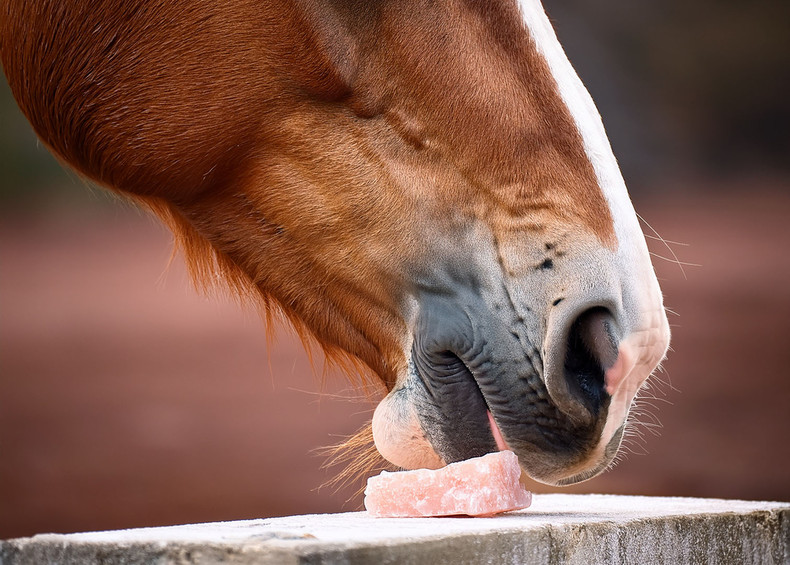How Important Is Salt For Horses?
It's very important! And it has a lot of different roles for body function and health.
- It supports circulation and heart health
- It helps maintain pH levels
- Salt is required for hydrochloric acid production in the stomach: HCl is required for protein digestion
- Salt supports the microbiome
- It is necessary for normal adrenal function
- Salt also plays a role in mental and emotional stability; stress can increase the requirements for salt. Conversely too much salt can cause increased stress.
Deficiency signs include pica, decreased thirst, reduced sweating, muscle weakness, fatigue, allergies, light headedness, poor appetite, anxiety, and depression.
Signs of excess (yes, it happens) include dehydration, fluid retention, overheating, diarrhea, nervousness, irritability, and depression.
Energetically, salt has ancient wisdom (salt of the Earth) and has purifying and detoxification properties. It is useful for grounding and also repels negative influences. As a homeopathic classical remedy, it is one of the most common prescriptions for a variety of different health conditions; it is deep acting (the remedy only requires 3 or 4 doses) and very effective.
How Much Salt Do Horses Need?
It very much depends on diet, lifestyle, weight, exercise levels, stress levels, health history, the seasons, and individual biochemistry. It is preferable to let horses free feed their own salt, but you have to ensure that it is salt that they like and benefit from otherwise they won’t get enough.
I often put out a 'salt bar' to see what they are drawn to and completely trust their choices. They may prefer normal mineral blocks, sulphur blocks, Himalayan salt, sea salt, Redmond’s salt, and loose mineral salt (which is a good way to monitor how much they are getting). Their preferences might surprise you! And can also change!



